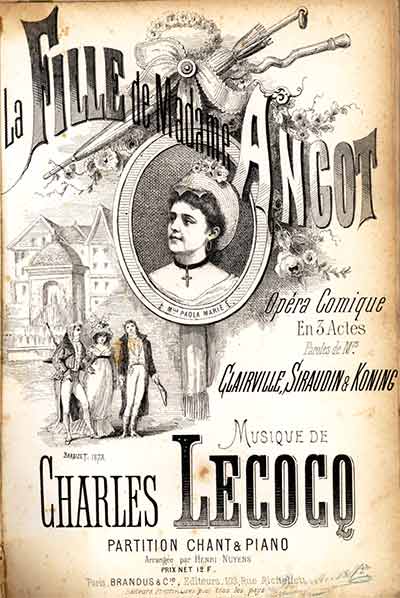|
|
 By inventing the Cabinet noir, Cardinal Richelieu had created a prosperous enterprize (four staff, twenty-two agents, amongst whom in particular Napolitans specialized in the breaking of postal seals). Louis XV, ruler of twenty million subjects and himself subject to bouts of melancholy, was indeed ageing badly, did not drink and every morning was interested only by the Moral Report, reading material which informed him better than no matter who about the state of the kingdom, while at the same time rousing a little his old bile.
It was Françoise d’Aubigné, marchioness of Maintenon, who had had the idea of supplying irreproachable spouses to the deserving: therefore she founded the Demoiselles de la Croix de Saint-Louis, a mixture of distinction and dignity with a touch of patriotism for these “grognardes” in petticoats, that is, in black skirts and white shirts buttoned up to the neck; sleeping in uniform nightshirts (for as drummed in by a poet-brother of Scarron: “woman who shows teats and bottom by tight clothing makes it known to every man that her con demands food”) in some one-hundred-and-thirty beds at the heart of monastic dormitories; not using make-up, nor cigarettes, not using bad language in the way of Madame Happy go Lucky; honouring with their feminine presence the balls of the military academies of the Crossbow or of the Sand, receiving the King on the day of the annual concert; getting up at 7h, going to bed at 21h30; greeting the Emperor’s full-length portrait in the dining-hall, going out in troops, always shepherded (the people in the neighbourhood treating them as nuns and daddy’s girls); - and respecting above all the tough commandments of the Poissard Catechism: “I ain’t one of these easy-going girls - we’ re not having lots of loves, and not one of these misses with furry lapdogs, who keep paramours - admiring the little Dervieux who had refused the 400 Louis in ringing cash, offer made by Lord Egremont, if she allowed him, just once, to put an arrow into her quiver; being indignant at the morals of the Tcherkessian Tatars who thought that in their community a woman would be dishonoured, if found to have as much as sighed at her husband’s funeral, a ceremony where habitually, among other enjoyments, a fifteen-year-old girl was deflowered, within the sight of all, as if scoffing at nature; laughing at the princess Enrichemont who threatened her chambermaids, when furious at them, with having them f... by her lackeys (precisely the reason why they often annoyed her); taking offence at the ordinance of 27 August 1763 which ruled that all negroes and all negresses had to leave the kingdom and retire to the respective possessions of their masters in America, all those who weren’t slaves duely sent to Cayenne, the reason for this expulsion being too marked an infatuation of white men for negresses and of white women for negroes; in a word, fearing God, without having other fears, unless that of being faced one day with the new ambassador at La Porte, like this Mehemet-Effendi whose lance could be lowered by Justine alone. Cf. Catéchisme Poissard, a collection of insults and other rough language as used by the women of la Halle, especially the poissardes: bold, rough, insolent women; compiled by the author Vadé (1758). Translation : Dagmar Coward Kuschke (Tübingen) |
ADG-Paris © 2005-2024 - Sitemap





